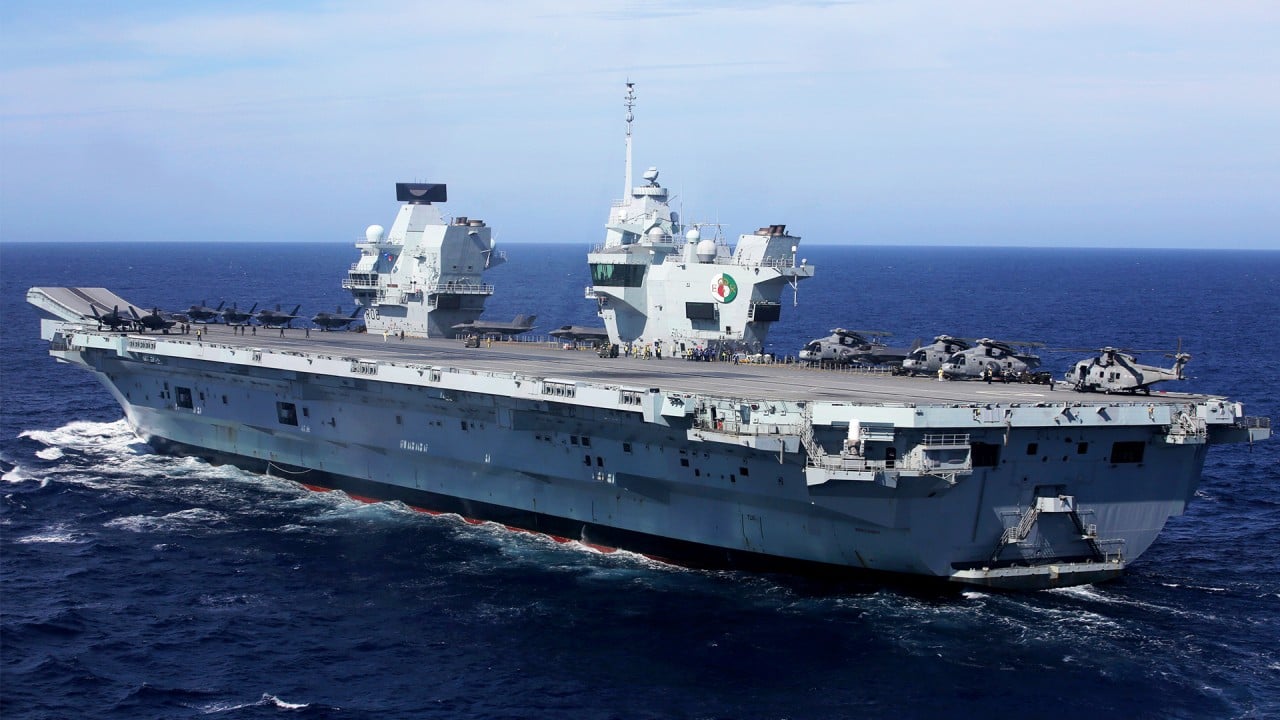
Japan urges Europe to have stronger military presence in Asia to tackle China
- Tokyo and Brussels must confront authoritarianism together, Japanese defence minister says
- Japan is taking tougher line on China but might not get its wish of a united front with EU, analyst says
“[Parties] such as Japan and the EU must tackle together ... the fight against authoritarianism,” Kishi said in an online address.
“As defence minister, I highly commend the point that the EU strategy sets out [about] the strengthening of presence and action in the Indo-Pacific.
“It is my sincere hope that such involvement will continue and expand, and that many more will follow the lead.”
A source familiar with Japan’s defence policymaking said the speech was part of Tokyo’s efforts to enlist the EU to put more pressure on Beijing.
“Japan hopes to use this opportunity to get more involvement from the EU in the region. HMS Queen Elizabeth’s visit to Japan will put tremendous pressure on Beijing this year,” the source said.
The carrier strike group will sail through the contested South China Sea, and conduct exercises with forces from Japan, Australia, Canada, South Korea, New Zealand, and a number of European states including France, Denmark, Greece, Italy and Greece.
In his speech, Kishi criticised Beijing for its “unilateral attempts to change the status quo by coercion” and efforts to militarise contested parts of the South China Sea.
He also expressed concerns over China’s “unilateral attempts to change the status quo” in the East China Sea, particularly with the adoption of a controversial coastguard law in January.
“The justified rights of all relevant countries should never be undermined due to the coastguard law, and we can never tolerate anything that could heighten the tension on the waters such as the East China Sea and South China Sea,” he said.
After the talks, Beijing accused Tokyo of being a “strategic vassal” of the United States.
China and Japan have a series of long-standing territorial and historical disputes and more recently have been at odds over Tokyo’s plan to release radioactive water in the ocean from the tsunami-crippled Fukushima nuclear plant.
Kishi said on Friday that Japan would “continue to keep a close eye” on the shifting military balance across the Taiwan Strait.
“It goes without saying that the stabilisation of the situation surrounding Taiwan is important for Japan’s security, but it is also important for a stable international community as well.”
Beijing considers Taiwan as a breakaway province to be united with the mainland, by force if necessary, and has rejected international support for the self-governed island.
Chinese Wolf Warrior diplomat hits out at Europe’s military focus in Indo-Pacific
Liu Weidong, a professor of international relations with the Chinese Academy of Social Sciences, said Japan had taken a tougher line against China in recent months.
“Japan sees that Biden has not backtracked on the Trump era’s tough policy on China. And it no longer sees the need to improve relations with China. Suga also needs to present a tougher international image to boost his weak domestic support,” Liu said.
But Liu said European states might not be completely aligned with Japan in its hope to form a united front against Beijing.
“Japan wants to put pressure on China. But it might be a one-sided wish if it wants to form a united front with the EU to counter China. Unlike Japan, the EU does not want to closely follow the United States’ strategy and completely sacrifice its relations with China.”


